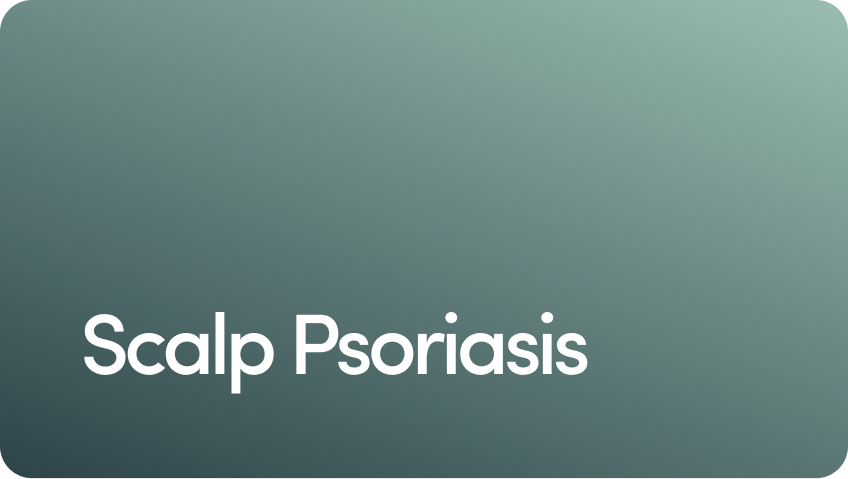Content
Thicker, fuller hair you'll love
List of Antidepressants That Cause Hair Loss

If you’re exploring treatments for depression, you might be curious about the list of antidepressants that cause hair loss.
While it’s not a common side effect, some medications for depression can lead to hair loss (AKA alopecia).
Research suggests that living with alopecia can significantly impact your mental health. And if you’re already dealing with depression and your treatment is a cause of hair loss, it’s easy to feel stuck.
But here’s the good news: This doesn’t happen to everyone and it’s typically temporary.
Below, we cover which antidepressants can cause hair loss and outline a game plan for addressing the issue.
(Experiencing hair loss but not currently on antidepressants? Our guide to hair loss in women can help you understand other potential root causes.)
Content
Antidepressants can disrupt your hair’s growth cycle, potentially leading to telogen effluvium — a condition where a significant number of your hair follicles prematurely enter the resting (telogen) phase of the growth cycle .
During this phase, which lasts about 3 months, your hair follicles are inactive. At the end of the telogen phase, affected hairs are shed to make way for new growth. This is when you may notice a sudden increase in the amount of hair you shed.
Telogen effluvium is typically triggered by some type of emotional or physical stressor. Certain medications, including some antidepressants, can act as a ‘stressor’ on the body, disrupting the normal hair growth cycle and triggering this condition.
If you’re finding more hair in your brush or shower drain after starting a new antidepressant, the medication could be influencing your hair cycle and causing a telogen effluvium.
CAUTION: Don’t go off any medications without first coming up with an alternate plan with your healthcare provider.
All medications and supplements come with a potential for side effects, but what medications cause hair loss in females?
Certain antidepression drugs are among the types of medications that can cause hair loss. They include:
Zoloft® (sertraline)
Prozac® (fluoxetine)
Janimine® (imipramine)
Anafranil® (clomipramine)
Paxil® (paroxetine)
Tofranil® (imipramine)
Adapin® (doxepin)
Sinequan® (doxepin)
Surmontil® (trimipramine)
Pamelor® (nortriptyline)
Ventyl® (nortriptyline)
Norpramin® (desipramine)
Elavil® (amitriptyline)
Asendin® (amoxapine)
Endep (amitriptyline)
Pertofrane (desipramine)
Vivactil (protriptyline hydrochloride)
Learn more about the types of antidepressant medications that can contribute to hair loss below.
1. SSRIs And Hair Loss
Selective serotonin reuptake inhibitors (SSRIs) work by blocking serotonin reabsorption, essentially freeing up more serotonin in the brain.
Serotonin (AKA “the happy hormone”) is a brain chemical that influences mood, emotions, and your sleep cycle. Because SSRIs influence serotonin levels in the brain, they can help regulate how you feel.
SSRI antidepressants include:
Fluoxetine (Prozac)
Sertraline (Zoloft)
Escitalopram (Lexapro)
A systematic review from 2022 identified 71 cases of hair loss linked to SSRI use. Onset of hair loss ranged between three days to five years after starting treatment, with the median time of onset being about 9 weeks. Stopping the SSRI led to hair regrowth in 63 percent of cases.
The exact risk of developing hair loss secondary to SSRI treatment isn’t clear, but is estimated to be about 1 in a 100 or even less.
Does Prozac Cause Hair Loss?
While rare, there are documented cases linking fluoxetine (generic Prozac®) to hair loss.
Consider the case of a 49-year-old woman with generalized anxiety disorder (GAD). She started fluoxetine to help manage anxiety, and within three months, she noticed her anxiety was nearly gone — but she also noticed slight hair loss.
Despite having her fluoxetine dosage reduced from 20 to 10 milligrams (mg), the hair loss continued. When her medication was finally discontinued, her hair returned to normal within four weeks.
Overall, the risk of hair loss with fluoxetine appears to be very low, considering the small number of reported cases relative to the millions of people who take it worldwide.
Does Sertraline Cause Hair Loss?
While it’s rare, sertraline (generic Zoloft), another SSRI, may cause hair loss. The available data is limited to a few isolated case reports of hair loss following the start of treatment with sertraline.
This side effect was reported in a 21-year-old male with major depressive disorder (MDD). He was prescribed and started taking 50 mg of sertraline daily. Just 15 days later, he noticed significant hair loss and visited a dermatology clinic.
Within two weeks of discontinuing the drug (after consulting with a healthcare professional), his hair loss stopped.
2. Tricyclic Antidepressants And Hair Loss
Tricyclic antidepressants (TCAs) increase brain chemicals like serotonin and norepinephrine, which help manage aspects of your mood and personality.
While there are anecdotal reports of hair loss in people taking TCAs, there’s no solid proof they trigger thinning.
It’s best to chat with your dermatologist or healthcare provider if you think you’re experiencing prescription drug-induced hair loss.
3. Other Antidepressants And Hair Loss
A couple of other types of antidepressants that may cause hair loss include:
Bupropion (Wellbutrin)
Evidence suggests that bupropion, a medication commonly used to treat depression and aid in smoking cessation, has the highest risk of hair loss compared to antidepressants like fluoxetine, citalopram, fluvoxamine, sertraline, escitalopram, duloxetine, desvenlafaxine, venlafaxine, and paroxetine. Among these, paroxetine is associated with the lowest risk.
Duloxetine (Cymbalta)
Duloxetine is part of the class of antidepressants called serotonin-norepinephrine reuptake inhibitors (SNRIs). Healthcare professionals prescribe it to treat depression, generalized anxiety, and certain types of pain. It is only rarely associated with hair loss.
Here are a few women’s hair loss treatments you can access online through our telehealth services:
Topical minoxidil. This FDA-approved treatment for female hair loss may help shorten the telogen phase of the hair growth cycle, encouraging hair growth and reducing hair loss. Hers offers both 2% minoxidil liquid drops and 5% minoxidil foam, available without a prescription.
Oral minoxidil. Oral minoxidil is a daily pill that doctors may prescribe off-label for hair loss. It might be an option for you if you find applying topical medications challenging.
Finasteride and minoxidil topical combo. Our finasteride & minoxidil spray combines the benefits of finasteride and minoxidil. Because of finasteride’s potential for teratogenic effects (AKA fetal abnormalities), we only recommend this product to postmenopausal women with female pattern hair loss.
Spironolactone. This anti-androgen drug targets hair loss-related hormones like testosterone and dihydrotestosterone (DHT). You shouldn’t take spironolactone if you’re pregnant or trying to get pregnant.
Antidepressants can help with depression symptoms and help you get back to feeling your best. While some treatments for depression might lead to hair thinning, not everyone experiences the same side effects.
Now that you know which antidepressants could be responsible for hair loss, here’s what we suggest:
If you’re on an antidepressant and experiencing hair loss, seek medical advice from your healthcare provider. Always talk to a medical professional before adjusting or stopping any medications. Your provider can talk through your options and prescribe a different antidepressant medication.
Try to control excess stress. Can depression cause hair loss? Yes. Medication isn’t the only potential cause of hair loss. Extreme emotional stress can also trigger telogen effluvium. Strategies like yoga and meditation can help manage your stress levels.
Consider treatment to help promote new hair growth. Ask a hair loss expert about effective hair loss treatment options like minoxidil which may help to speed up regrowth.
Want to learn more about hair loss in women and how to treat it? Check out our guide to female pattern hair loss.
Ready for a professionally-guided plan? Start your consultation with a Hers hair loss pro today!
17 Sources
- Carbone JO, et al. (2019). Dietary protein and muscle mass: translating science to application and health benefit. https://pmc.ncbi.nlm.nih.gov/articles/PMC6566799/
- Clark MI, et al. (2012). The effect of fiber on satiety and food intake: a systematic review. https://pubmed.ncbi.nlm.nih.gov/23885994/
- Fu JI, et al. (2022). Dietary fiber intake and gut microbiota in human health. https://pmc.ncbi.nlm.nih.gov/articles/PMC9787832/
- Hamed MA, et la. (2019). Capsaicinoids, polyphenols and antioxidant activities of Capsicum annuum: comparative Study of the effect of ripening stage and cooking methods. https://pmc.ncbi.nlm.nih.gov/articles/PMC6770197/
- Imran MU, et al. (2020). Lycopene as a natural antioxidant used to prevent human health disorders. https://pmc.ncbi.nlm.nih.gov/articles/PMC7464847/
- Li NI, et al. (2021). Green leafy vegetable and lutein intake and multiple health outcomes. https://pubmed.ncbi.nlm.nih.gov/34034049/
- Martinez-Valdivieso DA, et al. (2014). Application of near-infrared reflectance spectroscopy for predicting carotenoid content in summer squash fruit. https://www.sciencedirect.com/science/article/abs/pii/S0168169914001756
- Mukherjee PU, et al. (2013). Phytochemical and therapeutic potential of cucumber. https://pubmed.ncbi.nlm.nih.gov/23098877/
- National Heart, Lung, and Blood Institute (NHLBI). (2022). Use herbs and spices instead of salt fact sheet. https://www.nhlbi.nih.gov/resources/use-herbs-and-spices-instead-salt-fact-sheet
- Neteca JE, et al. (2025). Effect of beetroot juice supplementation on aerobic capacity in female athletes: a randomized controlled study. https://www.mdpi.com/2072-6643/17/1/63
- Sajovic JA, et al. (2022). The role of vitamin A in retinal diseases. https://pmc.ncbi.nlm.nih.gov/articles/PMC8835581/
- Sheng SI, et al. (2018). Corn phytochemicals and their health benefits. https://www.sciencedirect.com/science/article/pii/S2213453018301009
- U.S. Department of Agriculture (USDA). (n.d.) Seasonal produce guide. https://snaped.fns.usda.gov/resources/nutrition-education-materials/seasonal-produce-guide
- U.S. Department of Agriculture (USDA). (n.d.) Introduction to the Food Access Research Atlas. https://gisportal.ers.usda.gov/portal/apps/experiencebuilder/experience/?id=a53ebd7396cd4ac3a3ed09137676fd40
- Wang SU, et al. (2016). Chemical constituents and health effects of sweet potato. https://pubmed.ncbi.nlm.nih.gov/28460992/
- Woumbo CE, et al. (2022). Antioxidant and antidiabetic activities of a polyphenol rich extract obtained from Abelmoschus esculentus (okra) seeds using optimized conditions in microwave-assisted extraction (MAE). https://pmc.ncbi.nlm.nih.gov/articles/PMC9650115/
- Zujko MA, et al. (2023). Dietary antioxidants and chronic diseases. https://pmc.ncbi.nlm.nih.gov/articles/PMC9952631/
Editorial Standards
Hims & Hers has strict sourcing guidelines to ensure our content is accurate and current. We rely on peer-reviewed studies, academic research institutions, and medical associations. We strive to use primary sources and refrain from using tertiary references. See a mistake? Let us know at [email protected]!
This article is for informational purposes only and does not constitute medical advice. The information contained herein is not a substitute for and should never be relied upon for professional medical advice. Always talk to your doctor about the risks and benefits of any treatment. Learn more about our editorial standards here.
Addie Ganik, MD, FAAD
Dr. Addie Ganik is a board-certified dermatologist and a Medical Advisor for Hims & Hers. Prior to joining Hims & Hers, Dr. Ganik worked in digital health at Ro, where she focused on dermatology offerings, medical review, and patient education. In her clinical career, Dr. Ganik has practiced dermatology in both hospital and private practice settings. She has also contributed to several publications in peer-reviewed journals and presented at national conferences.
Dr. Ganik received her Bachelor of Science degree from SUNY Stony Brook, graduating summa cum laude. She received her M.D. from New York University School of Medicine and did her dermatology residency at New York University Medical Center Skin and Cancer Unit. Dr. Ganik also completed a postdoctoral fellowship in the Laboratory for Investigative Dermatology at The Rockefeller University, where she conducted research on psoriasis.
Dr. Ganik is board certified by the American Board of Dermatology, and she is a Fellow of the American Academy of Dermatology.
Dr. Ganik lives in New York and enjoys traveling, cooking, reading, and repurposing flea market finds. You can find Dr. Ganik on LinkedIn for more information.
Related Articles
Related Conditions
 Alopecia Areata
Alopecia Areata
 Dandruff
Dandruff
 Itchy Scalp
Itchy Scalp
 Folliculitis
Folliculitis
 Scalp Psoriasis
Scalp Psoriasis
 Hair Loss
Hair Loss